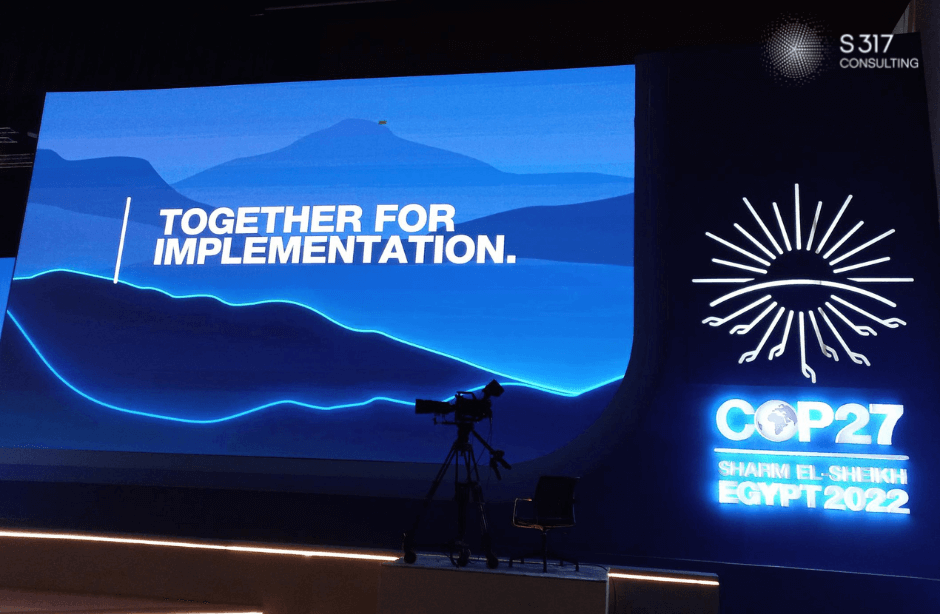After two weeks, COP27 in Sharm El-Sheik in Egypt came to an end. As usual, the negotiations were intense with an agreement having only been reached in the early hours of Sunday, way after the initial Friday deadline. However, as the need for action becomes more urgent, has the event answered to the requirements of our time?
This year has been marked by big events that translated to the agenda of the COP27. Still coming out of the covid pandemic, the year 2022 began with a war in Europe – a war that has altered the geopolitics and energy strategy of most countries in the world, especially the countries in Europe still highly dependent on Russia’s natural gas. Also, this year, we saw almost 10% of Pakistan’s territory under water after a heavy monsoon season and the melting of glaciers due to a severe heat wave – a study suggests that climate change made the floods in the country (and its effects) up to 50% worse. As we see extreme events happening more frequently, the impacts have been particularly felt by the most vulnerable which contributed the less to the current climate change crisis.
It was with caution from one side and a sense of seeking justice from another, that this COP started. After the Paris Agreement in 2015, where most countries made a commitment to act towards limiting global warming way below 2,0 °C (preferably, limiting it to 1.5 °C), advances in the negotiations of the different COPs have been limited, even if some important advances were done last year in Glasgow. Considering the global political scenario and recent COP results, the expectations were not high for this year. But did this COP deliver? What was achieved and what fell short of the expectations in COP27?
Main Achievement:
- Loss and Damage Fund: After the deadline for negotiations had already finished, an agreement was finally achieved regarding the creation of a Loss and Damage Fund which will be financed by developed countries to support developing countries dealing with the impacts of climate change. Within the next year, a group of specialists will define what should be the main settings of this fund and the findings from this group will be discussed during the next COP. Nothing concrete has been defined, but this was an important first step – at the beginning of the COP this theme was not even included in the negotiation agenda, so it can be said that it was a big step forward for climate justice and a big win, in particular for the most vulnerable countries
Main Negotiation Failure:
- Phase-out of all fossil fuels: After an agreement last year in Glasgow to phase out the use of coal for power generation up until the 2030s in developed countries and up until the 2040s in the developing countries, there was a large push for a similar commitment this year for a phase-out of all fossil fuels. In COP26, not all countries signed the agreement of phasing out coal (China, India and the US, large coal consumers, have not made this commitment); however, in COP27, the negotiations met large resistance from fossil fuel exporters such as Russian and Saudi Arabia in such a way that made impossible to reach an agreement at all.
What else happened:
- Launch of a guide for net-zero commitments for non-state entities: This was something that was agreed last year in Glasgow and that was announced during this COP. In the last years, we have seen a large number of companies pledging to have net-zero operations, with no clarity if there is a strategy behind it or even a deep understanding of what it means. To fight Greenwashing, the UN has launched a guide regarding on what the net-zero commitments should mean and the work that should be done before announcing them.
Despite a good outcome for climate justice (still to be defined of what it actually consists on), considering the ultimate goal of COP and the need for immediate action, it was disappointing to see a lack of stronger commitments and/ or agreements. As we approach 2030, and the need to reduce our global emissions by 45%, the time to act is now, and we should no longer have the luxury of pushing the deadline for “next year” or “next COP”. It falls on all of us to go beyond the political will, and to Act Now and deliver the transition that is needed.

